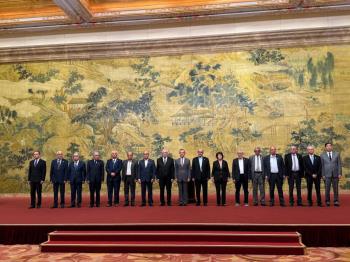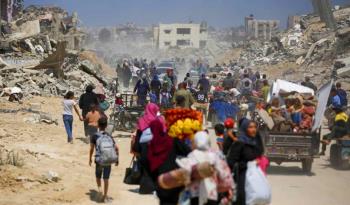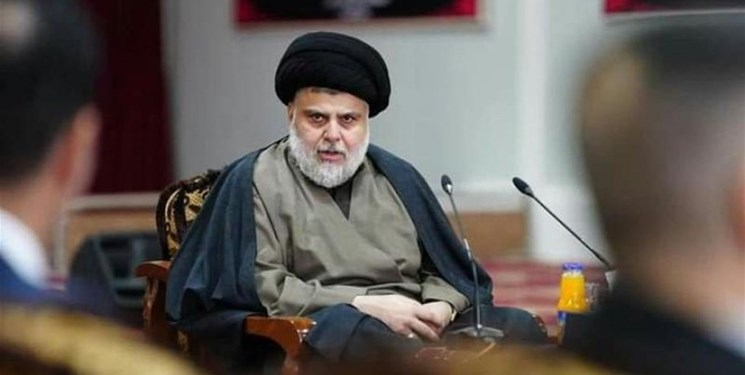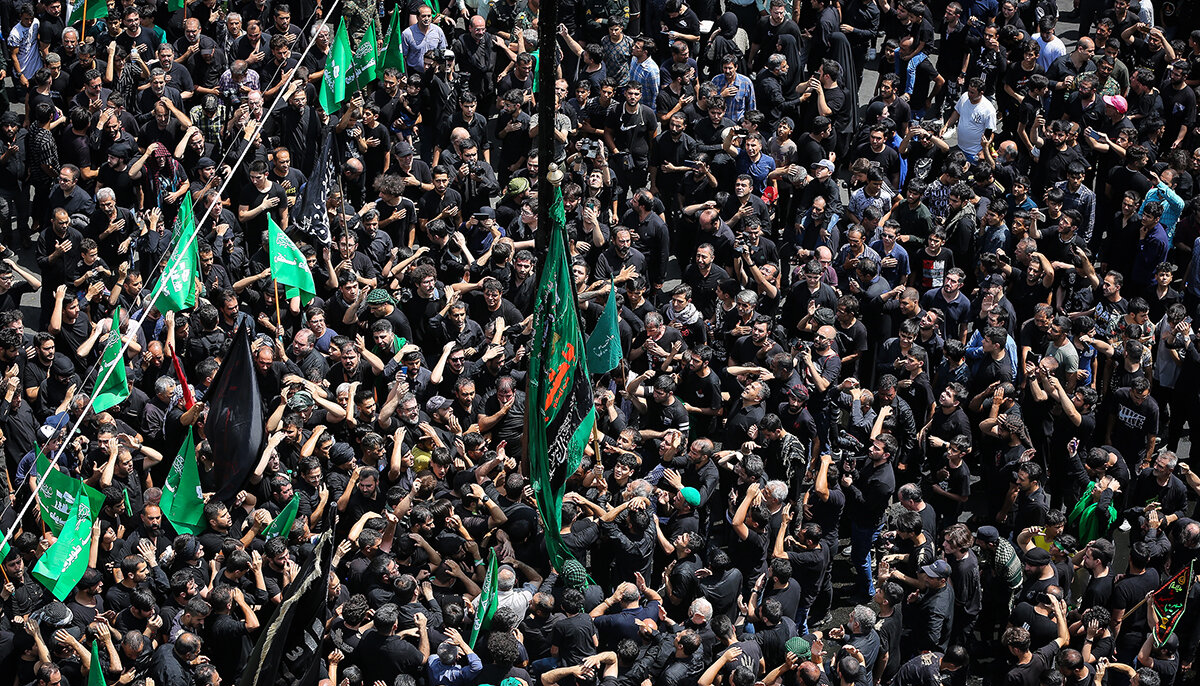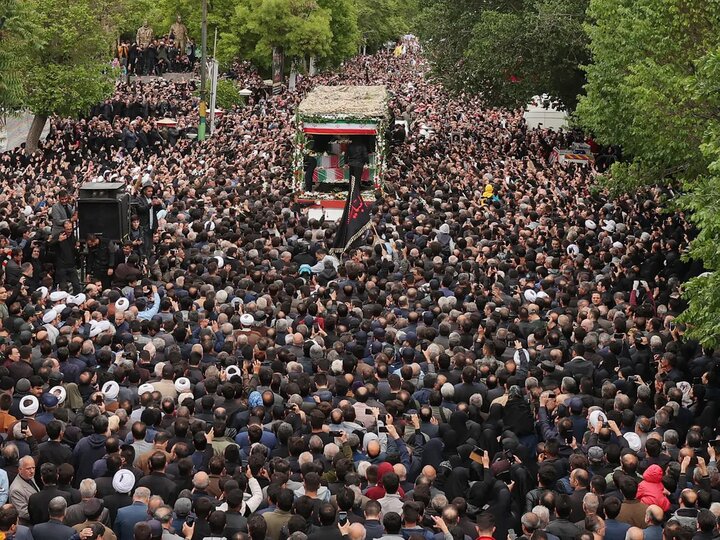Alwaght- Though Iraq’s political atmosphere has been relatively calm and less tense over the past weeks and months, some analysts think this situation is the lull before the storm, especially that as the summer approaches challenges like supplying electricity power and water increases. But, in the meantime, another matter that is concerning is the internal moves of the self-isolated Sadrist Movement and its possible return to the politics just a few months to the early parliamentary elections.
While there are not reliable news about the movement’s present views and its plans for the next stage and its political fate, observers, citing some pieces of evidence, believe that the Sadrists, like a sleeper cell, are preparing themselves for initiating a new stage, and are even seeking an opportunity to exploit possible mistakes of the current government, as experience of Muqtada al-Sadr in making sudden decisions makes him an unpredictable figure and a man of surprises in the Iraqi politics.
For the first time since 2005, last year a government was formed without participation of the Sadrist Movement. The government formation followed a statement by al-Sadr in August 2022 in which he announced his retirement from politics after his supporters stormed the parliament building and led actions of violence. The decision came as Sadrist Movement in the 2021 elections had a lead over its rivals by securing 73 seats.
Now and after several months of Sadrist-related controversies in the Iraqi political developments, a couple of developments inside the movement are once again captivating the attention. In one of the most and important and latest events, Hadi al-Daninawi, the Kufa mosque’s Friday preacher from Sadrist Movement said that the upper political class by passing some rules that provide their party and individual interests have “lost their path” and warned about anger of al-Sadr. He also warned about “ignoring” the stances of Sadrist Movement by other political forces and stressed that the bloc “watches the developments in the political arena carefully.”
The second issue that can be called a surprise is emergence of a new social movement called ‘Rafdh’, or rejection in English, a large number of whose members are Sadrists.
The Rejection Movement was launched by a group of youths and in less than 24 hours, it attracted hundreds of Sadrist supporters with slogans similar to those routinely chanted against corruption and inequity and targeting rival Shiite factions in the Shiite Coordination Framework (SCF) that now holds the parliamentary majority.
The activity of this new movement revolves around discontentment with the setting of new wages by the government and may expand to protests against the ruling political coalition and the government of Prime Minister Mohammed Shia al-Sudani. The Sadrist Movement has not yet issued any verification of the Rejection Movement though the vast majority of its members are supporters of newly-founded movement.
At the same time, al-Sadr did not invite any of the politicians outside of Sadrist Movement to the anniversary of the assassination of his father, Ayatollah Mohammad Mohammad Sadeq al-Sadr, and his social media account resumed its publication. All these, according to the Iraqi analyst Ghaleb al-Da’ami bear signs that the movement is on the verge of a new move that can be return to the politics.
According to Saudi daily Okaz, which cited sources close to al-Sadr, the new publications by al-Sadr’s account is aimed at restructuring Sadrist Movement to prepare it for any political activities and demonstrations.
Meanwhile, some analysts consider al-Sadr’s measures as aimed at settling the chaotic internal situation of this movement that has been moving to fragmentation. Ahmad al-Mayahi, a political analyst, believes that “there is a lot of pressure from some leaders of the movement on al-Sadr to return to the political process at any cost, and this is what al-Sadr does not want now.”
“It looks like Sadrist movement moved into a state of weightlessness after al-Sadr’s decision to close all the offices and agencies of this movement,” said al-Mayahi.
The recent remarks by Kufa Friday prayer preacher was a warning to some members and politicians of this movement who may want to break with the movement and found a new political bloc for elections after making sure al-Sadr will not participate, according to al-Mayahi .
According to this reasoning, part of al-Sadr’s concerns derive from possible success of al-Sudani and the SCF, and even the independents, to attract part of the forces and social body and voters of the Sadrist Movement. Several months after ex-PM Mustafa al-Kadhimi unveiled ‘New Sadr City’ project in Baghdad with a huge budget of 25 billion Iraqi dinar, now al-Sudani government has taken a long step towards implementation of the project. Some Sadrist figures claim the PM is exploiting the project for election purposes.
Sadr City is one of the most populous neighborhoods of the capital Baghdad, with an estimated population of 3 billion, which accounts for a large part of the 8.7 million population of the capital. The New Sadr City project, which includes construction of 90,000 housing units, has drawn attention of international companies for investment.
Assam al-Assadi, a political analyst and a former member of Sadrist Movement, maintains that the government of al-Sudani intends to attract not only Sadists masses but also the whole street by implementing multiple service projects.
Another cause of al-Sadr’s concerns about internal division is the rise of a group of Sadrists who name themselves Ahl Al-Ghadhiyah, or Owners of the Cause, and argue that al-Sadr is Imam Mahdi, the promised savior of the humankind in the Shiite teachings. This claim drew fury of the Shiites and even al-Sadr himself. A large number of the members of the group were arrested following a public outcry.
Interestingly, in their statements and videos, they stress that they arrange rallies and sit-ins outside al-Sadr’s house to convince him quit political self-isolation and return to “reforms.”
Immediately after the release of the videos, al-Sadr decided to end the itikaf in the historical mosque of Kufa and also stop various religious activities of the movement for one year.
In his statement, the religious leader described the movement as “corrupt”, adding: “If I am a reformist but cannot reform the Sadrist Movement, it is a sin to continue the movement’s leadership.”
Meanwhile, even closure of the offices has not convinced the Sadrists and political observers that al-Sadr will continue his isolation. A prominent Sadrist leader, who spoke on the condition of anonymity, told The New Arab news outlet that closure of the headquarters and offices does not mean that the Sadrists will not participate in both local and parliamentary elections.
Ihsan al-Shammari, the head of Baghdad-based Center for Political Thinking, in an interview with The New Arab held that aggregation of the Sadrist Movement by al-Sadr is a more religious and ideological than a political decision and he intends to restructure the movement. Ideologically speaking, this internal reform is meant to solidify popular base of the movement and strengthen al-Sadr’s relationship with his supporters.
But in opposition to the views that see al-Sadr ready to return to the politics, Jassem Mohammed al-Bayati, a leader at the SCF, believes that al-Sadr is close to street and and political forces and can send his messages directly and openly and not indirectly.
“What the Kufa mosque preacher said is not necessarily approved by al-Sadr,” al-Bayati went on.
Finally, what looks undeniable in the middle of analyses and various takes from al-Sadr and his supporters’ remarks is that comments and actions of this influential figure in Iraq’s developments can still be effective on the equations despite his official walkout from the politics.

